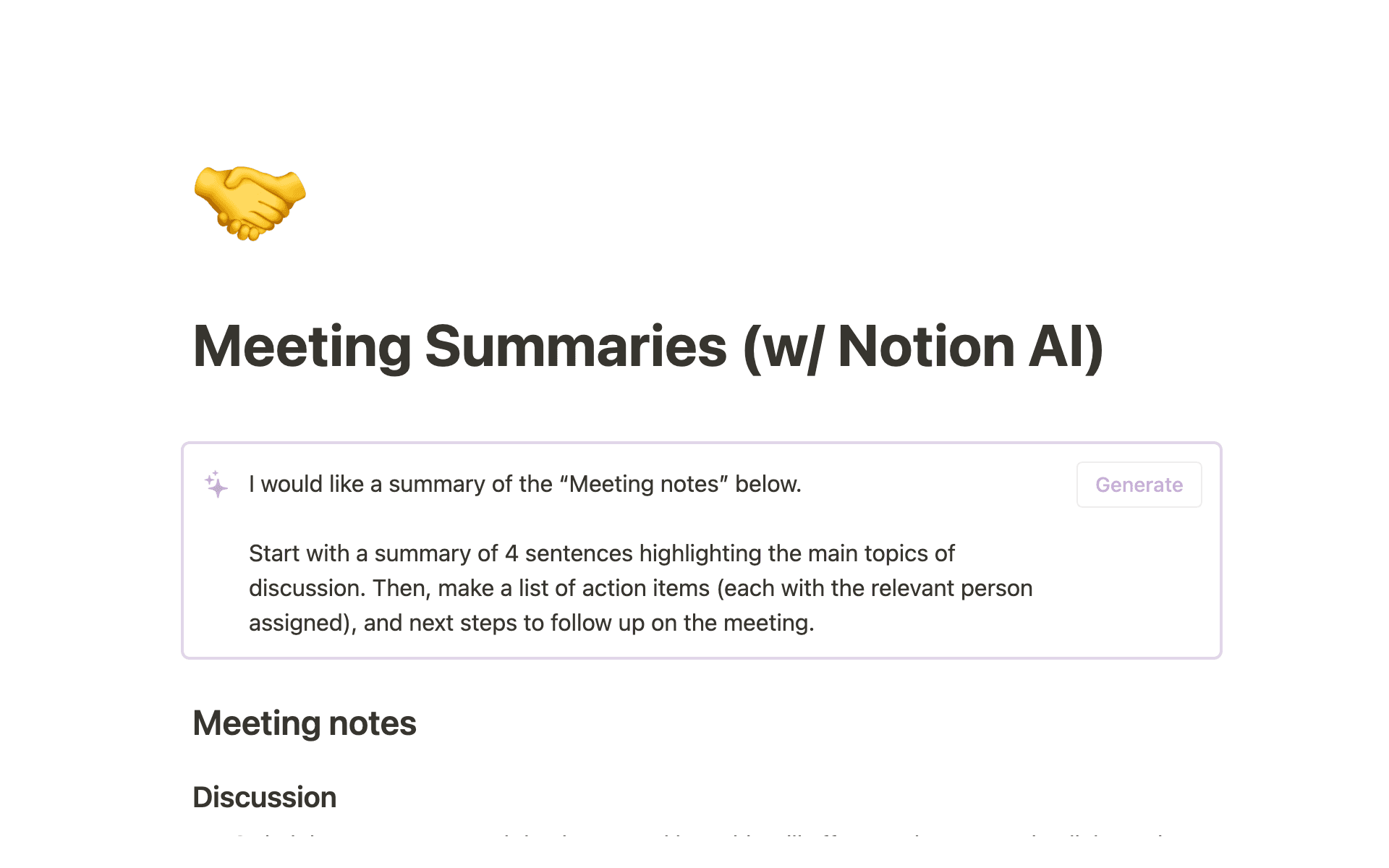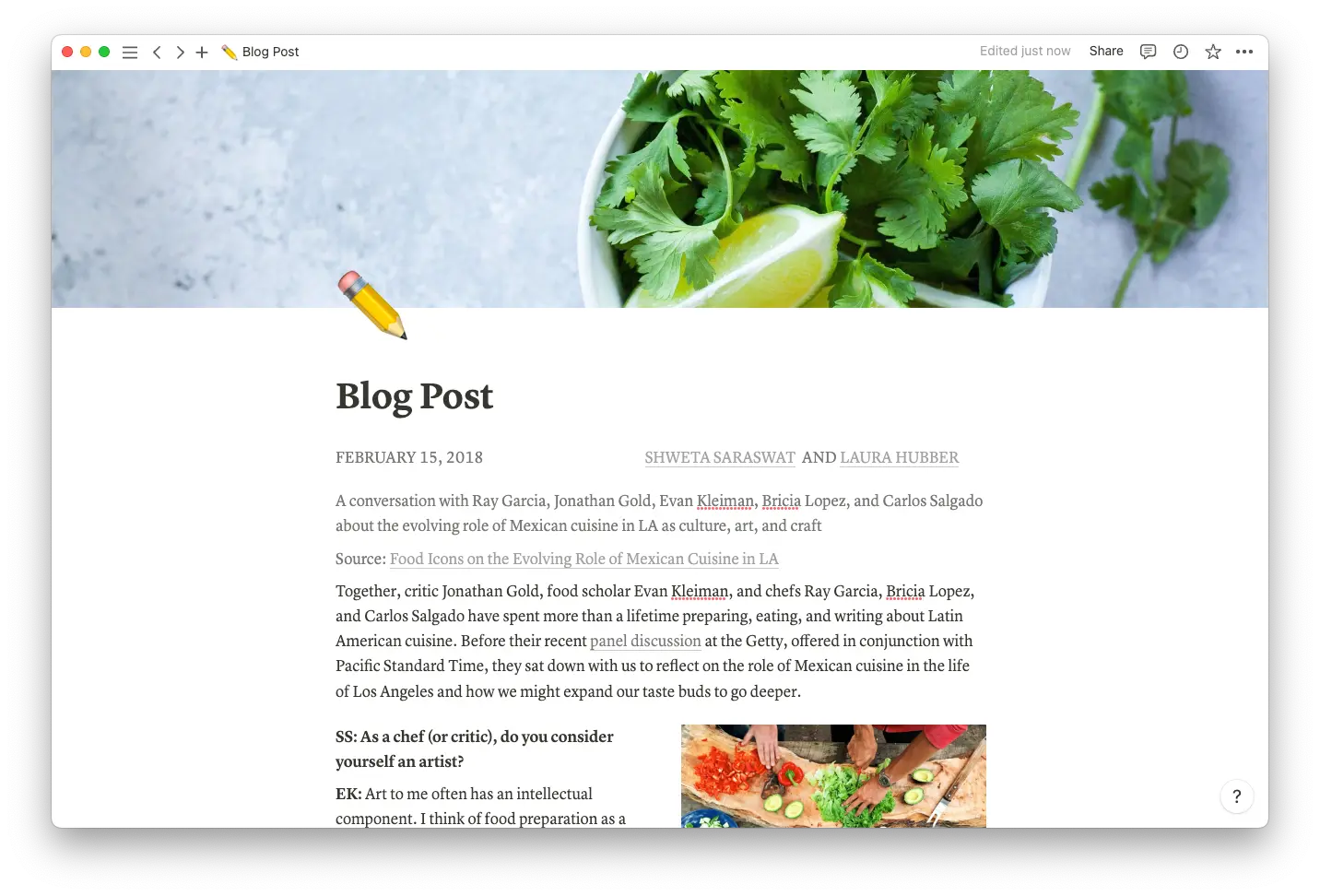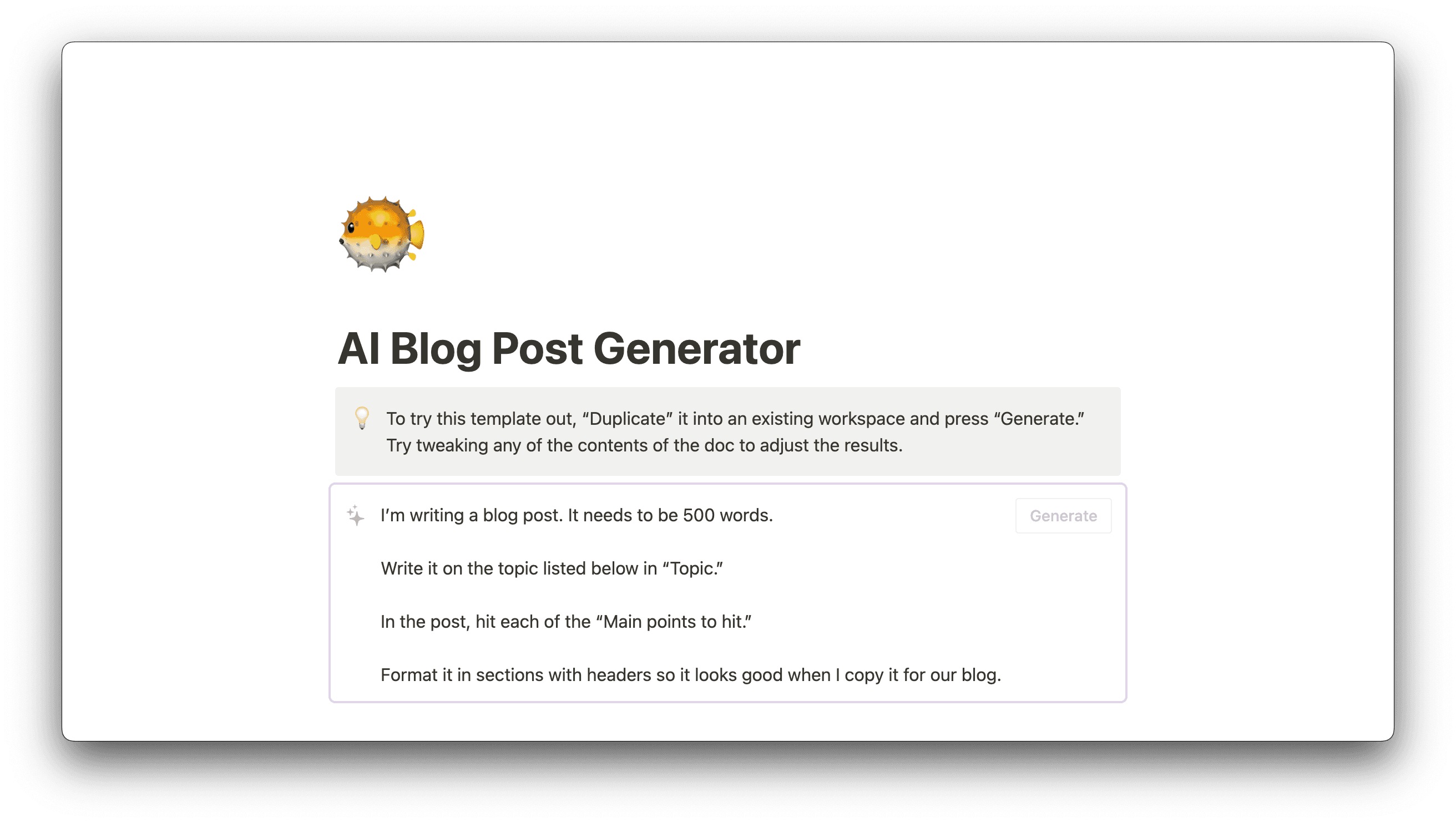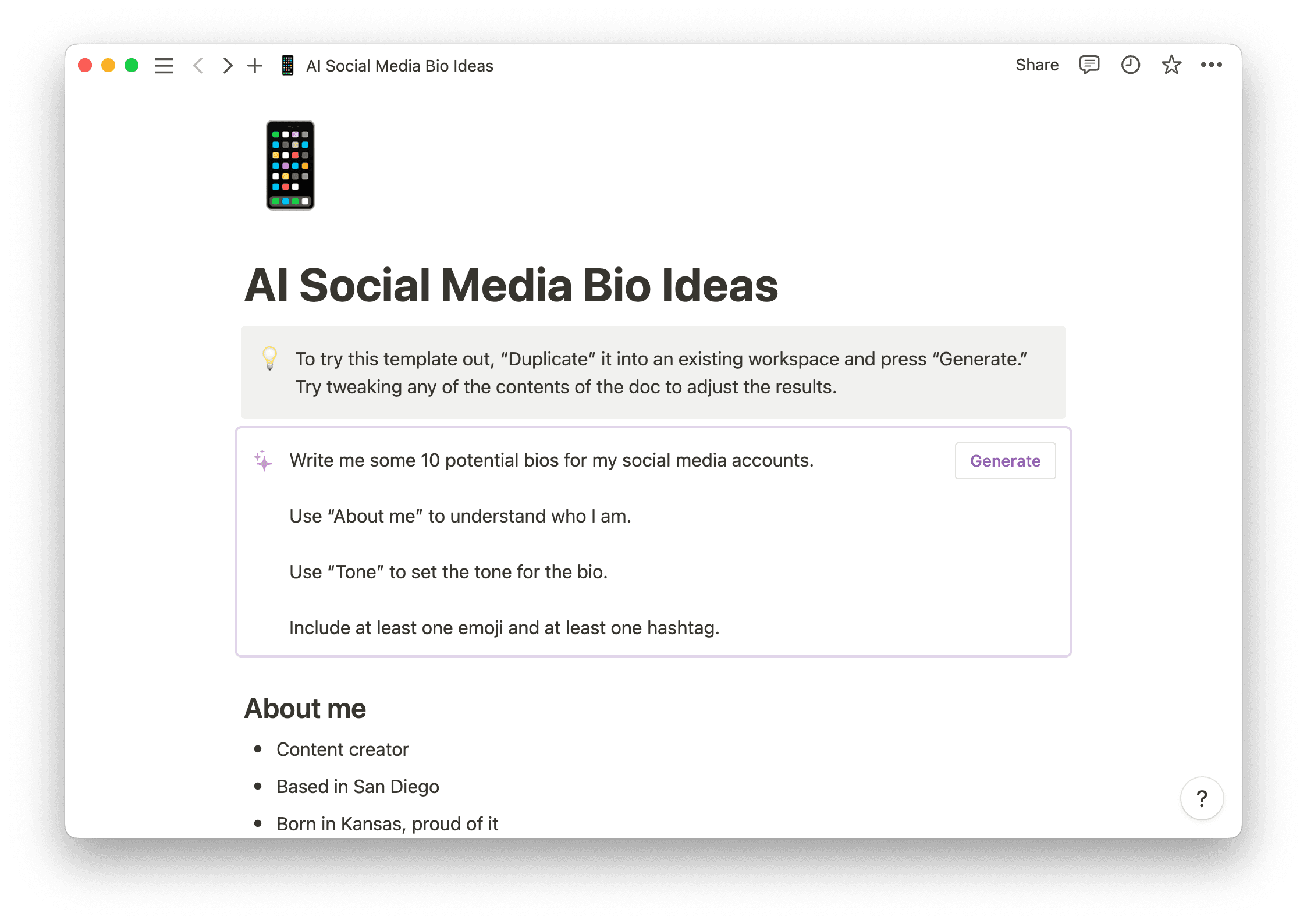Content teams want to publish consistently. And while content strategists often create ambitious schedules, bloggers can't always churn out several new posts a day. When you're faced with a blank page and a ticking clock, having a tool to help you get those initial words down on the page changes everything.
Enter artificial intelligence (AI) blogging software — the latest technology revolutionizing how we create content. This new generation of AI can help you generate blog ideas, article drafts, and all-new content faster than ever.
In this piece, we’ll learn how to use AI to support your blog’s workflow, explore whether blogging will exist after AI, and find the best tools for you and your team.

What is AI blogging?
AI-powered writing tools use complex algorithms, machine learning (ML), and natural language processing (NLP) to mimic human language patterns and create content that resembles human writing.
AI blogging, also known as AI-powered content creation, generates written content for blogs. You can also use AI to write for other platforms like social media, webpages, and even news outlets.
While AI writing software can help you get over writer’s block, it can’t yet fully replace human writers. These blogging tools can help you generate ideas and even write some of your content, but the human touch remains irreplaceable. It takes a real person to write truly engaging and authentic content.
6 ways to use AI for blogging
Although AI can’t fully replace human writers, AI-powered writing tools are a great starting point for finding ideas, creating a first draft, or polishing before publishing. For instance, AI blogging tools can:
Generate content — AI doesn’t get writer’s block, and it creates content more efficiently than humans. This is especially useful if you have a fast-paced content management strategy that’s hard for humans to keep up with.
Optimize your content for search engines — AI can find and suggest SEO keywords that help you rank higher on search engines and get more eyes on your blog. Search engines also love high-quality, readable content, and AI identifies potential issues in your content to optimize it even more.
Rewrite and paraphrase content — it isn’t always easy to find the right words. You can ask AI to rewrite copy you aren’t totally happy with, and it can find new ways to express ideas.
Create catchy headlines — AI can write headlines that follow UX writing principles and grab your reader's attention. These tools analyze your content to identify key themes in the piece and suggest titles. They can also make sure your headings and subheadings include relevant keywords for search engines.
Assist with research — the internet has a lot of content, and you can’t comb through it all on your own. AI can help you analyze and organize large volumes of information, identify relevant sources, and suggest topics to write about.
Check that your writing is error-free — AI grammar-checking tools help you avoid common writing pitfalls like typos, repetition, and incomplete sentences. They can also identify sentences that are too long. If you’ve been staring at your copy for ages, chances are you could use a review. AI is there for you.
6 tips for creating great blog posts with AI
AI isn’t perfect, and you don’t want to publish messy or incorrect content. Before you dive into using AI-powered tools for blogging, check out these best practices.
Be the final approver — AI streamlines the blog creation process, but you shouldn’t fully rely on it. Your content still needs human input, craft knowledge, and editing skills. Use AI writing tools all you want, but add the final touches yourself.
Fact-check everything — while AI-powered tools can help you research, they don’t have the critical thinking skills to know what’s wrong or what’s right. It’s important to fact-check all the information in your writing. Most of the time, language models like OpenAI’s ChatGPT or Bing Chat don’t check the accuracy of what they say. They’re there for storytelling and text generation, not fact-checking. Verify statistics and data before you publish.
Always add your POV — though AI-generated content is informative and well-written, it lacks the personal touch that can only come from a human perspective. You know your brand and target audience the best. Add your own point of view and insights to your writing to better engage readers and reflect your brand voice.
Avoid publishing 100% AI-created content — search engines could flag your AI posts as spam, tanking your SEO ranking. While Google doesn’t directly punish AI content, it has stated it will penalize low-quality content. Without human intervention, AI-generated content might appear low-quality to Google and other search engines. Put in the effort to adjust it and up the quality before you hit publish.
Experiment and learn — since AI writing technology is so new, you'll want to experiment with it and learn what works best for you and your audience. Start small and see how readers react. Establish KPIs and metrics to determine how each AI-assisted piece performs compared to non-AI-assisted writing.

Give clear directions — AI writing is only as good as the input you provide. Before you start writing, create a brief that outlines your topic, audience, and key messages. Use this to guide the AI and make sure you’re producing relevant and engaging content that meets your goals.
Other AI tools for content creation
AI blogging tools aren’t the only way to superpower your content creation workflow. Take a look at these other AI-powered content-generation apps and tools:
Grammarly is an AI-powered writing assistant that checks your content for grammatical errors, spelling mistakes, and misplaced punctuation.
AI Writer is an AI copywriting tool to help you generate high-quality content.
Articoolo is a content-creation tool that uses NLP to analyze your topic and generate content like articles or even video scripts.
Notion AI supports you throughout your content generation process, from developing a strategy to creating the content itself.
Possible roadblocks to using AI for blogging
While AI-powered content creation tools can be incredibly helpful, here are a few drawbacks to watch out for:
Cost — some AI tools are quite expensive, especially if you're looking for advanced features or a high level of customization. Depending on your budget and the size of your blog, the expense might be hard to justify.
Technical expertise — while some AI tools are user-friendly, others require a certain level of technical expertise to set up and use effectively. For instance, OpenAI’s GPT-3 and GPT-4 require an API integration to harness their full potential, which could be a significant hurdle if you aren’t familiar with high-tech tools.
Accuracy — AI blog writers aren’t a replacement for human research. Not all information on the internet is accurate (shocker!), which means AI content writing tools aren’t all accurate either. You also need to check the content to avoid plagiarism.
Integration with existing workflows — depending on the tools you're using and the platform you're publishing on, you may need to make adjustments to your workflow so everything works smoothly together. If you’re already running a successful blog with a fast-paced publication schedule, integrating a new tool into the mix will take some trial and error and might slow you down.
Yes, AI for blogging is worth it
AI blogging tools streamline the content creation process and help with brainstorming, research, organization, and more. Despite potential roadblocks, AI blogging tools ultimately give you a great support system to create high-quality content.
If you're looking for a user-friendly AI tool for writing, check out Notion AI. Notion’s connected workspace lets you organize your thoughts, automate repetitive tasks, and collaborate more effectively with your team, and Notion AI fits right in. You don’t have to worry about outside tools.
With its NLP and ML algorithms, Notion AI generates blog post templates and suggests relevant tags, keywords, and categories to make your content easier to find and use. Try Notion AI today.







